Otto Schenk
出生 : 1930-06-12, Wien, Austria

Director
The plot of Die Fledermaus is woven around a ball given by Prince Orlofsky.
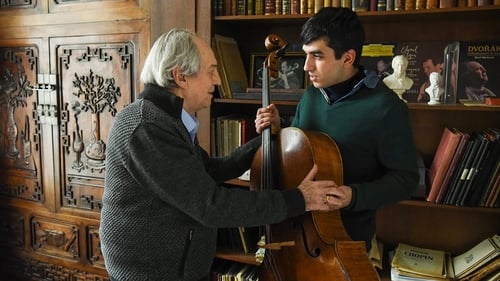
Karl Michaeli
Professor Karl Michaeli is a former star cellist and grantler , as he is in the book. After the death of his beloved wife Maria in 2014, the retired music professor lives alone in a three-room apartment in Vienna. To his displeasure, several foreign families are housed in his apartment building. The widowed, free-spirited apartment building owner Esther Polgar also houses refugees in his home. These are a special thorn in Karl's side.

Director
To avoid serving his prison sentence, a fashionable socialite sneaks off to a lavish party. The champagne flows as guests waltz the night away, but several of them have something to hide. This internationally renowned production by Otto Schenk takes the audience on a bumpy ride through all kinds of intrigues, clothing mix-ups and mistaken identities, until we finally reach a rather hung-over happy ending. Conducted by Franz Welser-Möst and streamed on Strauss’ birthday, this performance is part of OperaVision’s events celebrating the inaugural World Opera Day on 25 October 2019.

Reiter senior
A murder case is drawing more attention to the family history of historian Adelgunde. In cooperation with a young Russian girl, who knows surprisingly much about her father, Adelgunde finds out about strictly guarded family secrets.

Himself

Walter
Stories about citizens of a big city who encounter a variety of fates as a result of their difficulties in communicating with each other.

Director
The Adventures of Vixen Sharp-Ears.

Director
Janacek's opera performed in Vienna on April 11, 2016

Director
Renée Fleming sings one of her signature roles, the title character in Dvořák’s sumptuously melodic Rusalka. The story of the opera, which is about a water spirit’s tragic romance with a human prince, is drawn from several folktale sources including Hans Christian Andersen’s “The Little Mermaid.” Star conductor Yannick Nézet-Séguin leads a cast that also includes Piotr Beczala as the handsome Prince whom Rusalka yearns to love; Dolora Zajick as the cackling swamp witch Ježibaba; Emily Magee as the Foreign Princess, Rusalka’s rival; and John Relyea as Rusalka’s father, the Water Sprite.

Edek

Austrian classical conductor Carlos Kleiber (1930-2004) was as eccentric and reclusive as he was brilliant, persistently and obstreperously declining to participate in the international music community or business. This set him apart from his more public contemporaries, such as Herbert von Karajan. This biographical documentary attempts to resolve the ambiguities surrounding Kleiber. The product of exhaustive research, it features rare performance footage of Kleiber leading orchestras, and draws on interviews with individuals who knew and worked with the maestro, including Otto Schenk, Riccardo Muti, Michael Gielen and Ioan Holdender. Carlos Kleiber also turns up to conduct a series of illustrative musical excerpts.

Director
Donizetti’s timeless comedy shines in Otto Schenk’s enchanting production, conducted by James Levine and featuring a remarkable cast. The incomparable Anna Netrebko is Norina, the young widow beloved by Ernesto (a suave Matthew Polenzani), who is about to be disinherited by his miserly uncle, Don Pasquale (John Del Carlo). It takes the clever scheming of Dr. Malatesta (Mariusz Kwiecien) to set things right and to teach the old curmudgeon a lesson—fits of temper, mistaken identities, and all kinds of comic confusion included.
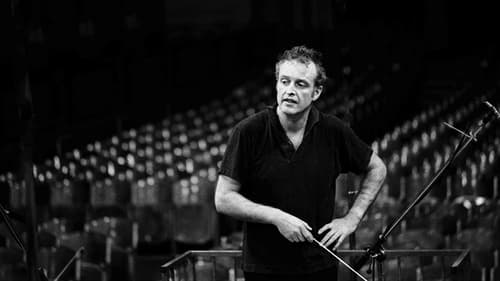
A documentary about the life and career of the conductor Carlos Kleiber. Featuring interviews with Placido Domingo, Brigitte Fassbaender, Manfred Honeck, Michael Gielen, and others. On the 11th July 2004 Carlos Kleiber got into his car and drove from Munich, via the Alps, to his holiday home in the remote Slovenian village of Konjsica. There he wrote a final letter to a friend in which he bid farewell to the world. A short time later the conductor, increasingly plagued by illness and suffering, was found dead.

Patient Knoppig

Monsieur Argan
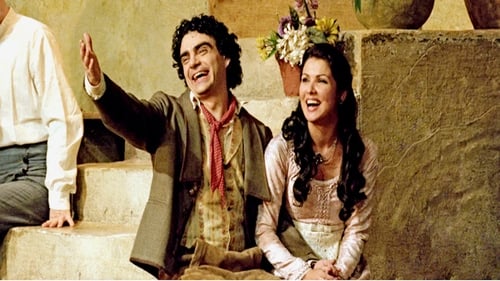
Director
Donizetti's L'Elisir d'Amore is one of the staples of the comic opera repertory. The plot hinges on whether earnest but dim-witted Nemorino will snag Adina, the flirtatious heroine. She's a tease who takes up with Belcore, an army sergeant, to make Nemorino jealous. After numerous (and humorous) plot twists that include a phony love potion, it all ends happily. Adina and Nemorino declare their love for each other, Belcore is dumped, and the fraudulent Dulcamara does a landslide business in love potions. It's all a fast-moving bundle of fun, especially with the star-filled cast of this 2005 Vienna State Opera performance.

Gabriel Brunner
Kampl wants to bring love and inheritance matters into the right hands. His grandson Gabriel has plans about what's best for himself.

Self

Enrico Beloni

August Grandits

Tito Merelli

Walter Hofer
Small war among pensioners: The charming chaotic Walter Hofer and the pedant Eberhard Gatzweiler have had a love-hate relationship for decades. Not even their grandson Martin can change that. During the lovable tug-of-war for the favor of Martin's attractive teacher Hanna, the waves get even higher, but Hanna has completely different worries.

Friedrich Hoffmann
An old, rich bachelor learns that he has a granddaughter ...
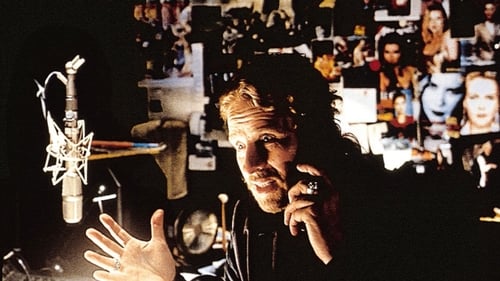
Dr. August Beer

Karl Horak

Franz Sedlak
Austrian version of the novel "Dvenadtsat stulyev".

Potasch

Franz Sedlak
A comedy directed by Helmut Lohner

William

Production Director
The Otto Schenk production of Richard Strauss's "Elektra", filmed live at the Metropolitan Opera in January, 1994. Hildegard Behrens stars as Elektra, with Deborah Voigt as Chrysothemis, Brigitte Fassbaender as Klytämnestra, Donald McIntyre as Orest, and James King as Aegisth. James Levine conducts.
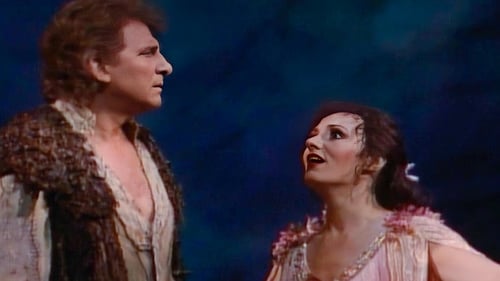
Production Design
The Met production easily has the most beautiful staging, designed by Otto Schenck, who also produced the fabulous set for the Met's previous Ring cycle. Kurt Moll is a wonderful Gurnemanz, but compared to his studio recording under Karajan a decade earlier it has lost some of its original velvety body and luster. As Parsifal, Jerusalem is starting to show some wear and tear on his voice at the Met in 1992 as opposed to his prime form at Bayreuth in 1981, but is still quite good; only Placido Domingo could compete with him in the role at that time.

Director
The Met production easily has the most beautiful staging, designed by Otto Schenck, who also produced the fabulous set for the Met's previous Ring cycle. Kurt Moll is a wonderful Gurnemanz, but compared to his studio recording under Karajan a decade earlier it has lost some of its original velvety body and luster. As Parsifal, Jerusalem is starting to show some wear and tear on his voice at the Met in 1992 as opposed to his prime form at Bayreuth in 1981, but is still quite good; only Placido Domingo could compete with him in the role at that time.

A comedy directed by Frank Strecker.

Kommissar Joseph Mallinger

Ein berühmter Mann

Director
The stupendous climax to Wagner’s four-part Ring cycle is brilliantly realized by the Otto Schenk/Günther Schneider-Siemssen production and byJames Levine’s monumental conducting. The Met orchestra, chorus, and an all-star cast make this Götterdämmerung one that truly rises to the occasion. Hildegard Behrens’s Brünnhilde must be experienced to be believed, as does Matti Salminen’s richly sung, domineering Hagen. At the center of the drama is Siegfried Jerusalem as Siegfried, who does not realize he has been drawn into a plot of betrayal until it is too late. Christa Ludwig is magnetic as Waltraute and Ekkehard Wlaschiha is a compelling Alberich.
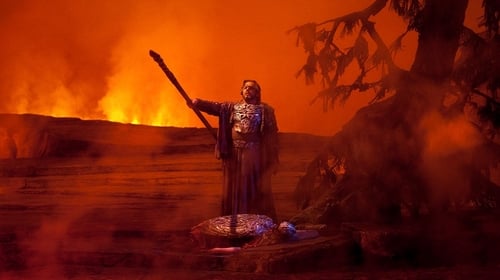
Production Design
The gorgeous and evocative Otto Schenk/Günther Schneider-Siemssen production continues with this second opera in Wagner’s Ring cycle. Hildegard Behrens brings deep empathy to Brünnhilde, the favorite daughter of the god Wotan (James Morris) who nevertheless defies him. Morris’s portrayal of Wotan is deservedly legendary, as is Christa Ludwig, as Fricka. Jessye Norman and Gary Lakes are Sieglinde and Siegmund, and Kurt Moll is the threatening Hunding. James Levine and the Met orchestra provide astonishing color and drama. (Performed April 8, 1989)

Director
Siegfried is the third of the four operas that constitute Der Ring des Nibelungen (The Ring of the Nibelung), by Richard Wagner.

Director
The gorgeous and evocative Otto Schenk/Günther Schneider-Siemssen production continues with this second opera in Wagner’s Ring cycle. Hildegard Behrens brings deep empathy to Brünnhilde, the favorite daughter of the god Wotan (James Morris) who nevertheless defies him. Morris’s portrayal of Wotan is deservedly legendary, as is Christa Ludwig, as Fricka. Jessye Norman and Gary Lakes are Sieglinde and Siegmund, and Kurt Moll is the threatening Hunding. James Levine and the Met orchestra provide astonishing color and drama. (Performed April 8, 1989)

Schnoferl

Director

Eugen Doleschal
The film consists of several small episodes that take place in and around Munich.

Director
Otto Schenk’s brilliant production captures both the dark romanticism of the story as well as its fairy-tale magic. It is a superb setting for Neil Shicoff’s vivid portrayal of the tortured poet Hoffmann, as he recounts the loves of his life and the way he has been foiled by his nemesis—a marvelous James Morris in a tour-de-force performance of the opera’s four villains. Gwendolyn Bradley is the doll Olympia, Tatiana Troyanos sings the courtesan Giulietta, and Roberta Alexander portrays the innocent Antonia.

Director
Live performance from the Metropolitan Opera, 31 December 1986.

Frosch
Live performance from the Metropolitan Opera, 31 December 1986.

Director
オットー・シェンクが演出したJ. シュトラウスの喜歌劇「こうもり」を収録した映像作品。

Producer
オットー・シェンクが演出したJ. シュトラウスの喜歌劇「こうもり」を収録した映像作品。

Director
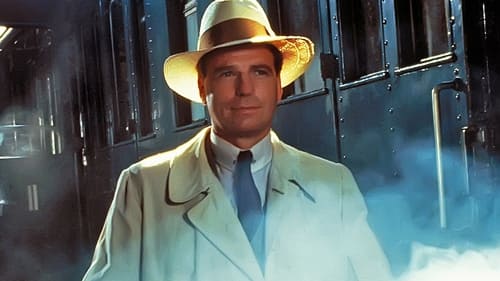
Minister Spittelberger
In October 1936, a high official in the Austrian government receives a letter from a German Jewish woman with whom he had an affair in 1925 asking him to help place an 11-year-old, half Jewish boy in a good Austrian school. Is the child his? Should he help? And above all should he help now, at a time when Nazis are becoming powerful in Austria?

Gluthammer - ein Schlosser

Director
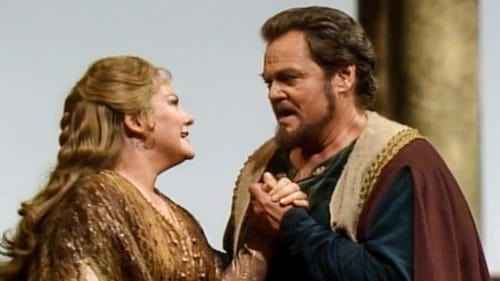
Production Design
As renowned for its harmonious overture as for its romantic storybook characters, this three-act masterwork features some of the composer’s most groundbreaking and unforgettable music, as well as a theme the young Wagner would revisit again and again later in his career—the redemptive and transcendent power of a woman’s love. The enchanting plot harks back to medieval history: Wolfram is a lovesick troubadour who desires the virtuous Elisabeth. She, however, has eyes for another: the rebellious knight Tannhäuser, who in turn cannot get over an overwhelming sensual experience in the realm of the goddess Venus, and is banished for singing her praises at court. Only saintly Elisabeth’s death can atone for his misdeeds.

Director
Every bar bubbles with the spirit of the Bohemian countryside in Otto Checnk's picturesque 1982 production from Vienna, where Smetana's comic masterpiece first conquered the heart of opera lovers with its lilting melodies, lovable characters and rousing Czech folk dances. This colourful, beautifully sung performance features legendary Czech soprano Lucia Popp and German tenor Siegfried Jerusalem. Filmed live at the Wiener Staatsoper in 1982, the appearance of the townsfolk, wearing their traditional Bohemian costumes, exuberantly singing and dancing, serves to quickly draw us into the early 1870s and this engaging comedy of love nearly thwarted but ultimately triumphant.

Director
Although Domingo was younger and Banackova looked more like the sweet and innocent young Madalena than the one played by Tomowa-Sintow in the ROH production, this production was not as good. It was not as tight and neat. The tempo set was far too slow for the time-period of the story. The stage setting was distracting. The lighting was too dark. Except Domingo, a natural actor who was always into his role and sings and acts with passion, none of the other performers came up with a convincing portrayal of the role he/she played.

Iwan Petrowitsch Alexandrow

Director

Theodor - Diener

Direktor

Director

Director
This production is a gala affair; the sets are traditional (evocative of 18th-19th century Spain); the lighting is bright, so colors are good and one can see all of the action. Singers are generally well chosen and perform admirably. However, at this point, slight reservations creep in; although Janowitz (Fidelio/Leonore) and Kollo (Florestan) look "good" and act well, the singing parts tax them a bit when pushed to the limit. Most of the time that doesn't matter, and an argument can be made that a little vocal strain is in character with their dire plight. Ideally, for me, Vickers as Florestan would have added extra vocal heft and more sensitive acting than Kollo.

Director

Director

Plutzerkern

Director

Director
This production from Covent Garden is set in Stockholm, and not Boston. With Reri Grist (Oscar), Placido Domingo (Gustavus), Katia Ricciarelli (Amelia), Piero Cappucili (Renato), Patricia Payne (? - the booklet or DVD fails to credit the singer) (Ulrica) and Claudio Abbado in the pit: all at their peak, you just simply cannot go wrong when purchasing this DVD. This performance made me realise why I had fallen in love with opera: beautiful (today one should be thankful) and convincing sets and costumes, and fiery conducting and singing from all the above soloists which leaves you breathless. Domingo as the King (not the Governor of Boston) is simply ravishing! He is so convincing and dashing as Gustavus - I think very few tenors nowadays can even attempt such a convincing vocal and dramatic performance.

Director

Self
"The Great Magician" - Max Reinhardt (1873-1943) was an Austrian theater and film director, director, theater producer and theater founder. With his Jedermann production on August 22, 1920, he founded the Salzburg Festival.
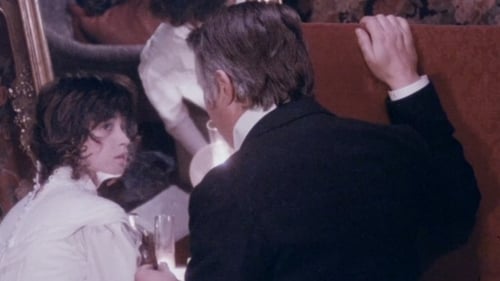
Screenplay
An all-knowing interlocutor guides us through a series of affairs in Vienna, 1900. A soldier meets an eager young lady of the evening. Later he has an affair with a young lady, who becomes a maid and does similarly with the young man of the house. The young man seduces a married woman. On and on, spinning on the gay carousel of life.

Director
An all-knowing interlocutor guides us through a series of affairs in Vienna, 1900. A soldier meets an eager young lady of the evening. Later he has an affair with a young lady, who becomes a maid and does similarly with the young man of the house. The young man seduces a married woman. On and on, spinning on the gay carousel of life.

Director

Director
Witty, fun, intoxicating film of Johann Strauss II's popular operetta, based on a stage production from Vienna State Opera; this is a showcase for the entire cast, but most especially Eberhard Wächter as the insufferably boorish Gabriel Eisenstein, and Gundula Janowitz as his long-suffering wife. Open the champagne, have yourself some torte, and enjoy this delectable comedy from Vienna.

Oskar
A new highway, a new chairlift, the election of the new mayor and again a lot of alcohol.

Director

Stage Director
In this documentary portrait prepared for the anniversary of Ludwig Van Beethoven's 200th birthday, Leonard Bernstein illustrates his analysis with excerpts from his performances of Beethoven's Piano Concerto No. 1 in C Major and the Ode to Joy from the Ninth Symphony.

Self
In this documentary portrait prepared for the anniversary of Ludwig Van Beethoven's 200th birthday, Leonard Bernstein illustrates his analysis with excerpts from his performances of Beethoven's Piano Concerto No. 1 in C Major and the Ode to Joy from the Ninth Symphony.

Köck

Director

Director

Director

Director

Hofbeamter

Josef Specht

Director

Max Stehberger

Lorenz

Schaffner

Thomas Diafoirus

Ein junger Nachtwächter





























